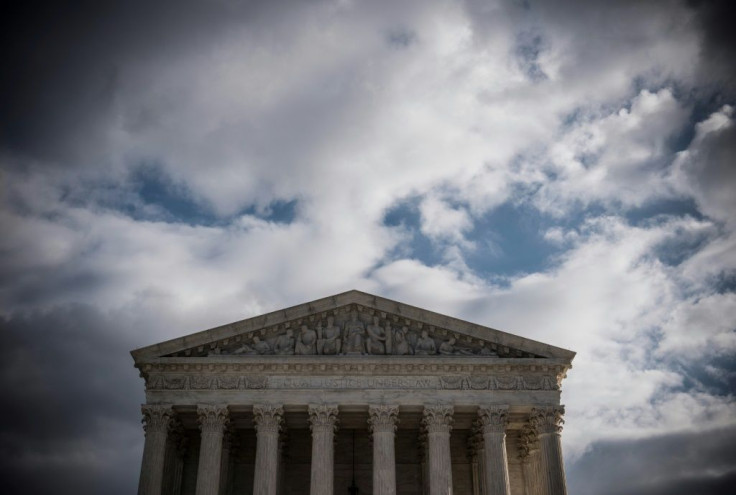Supreme Court Blocks Appeal By A Former Kentucky County Clerk Sued For Not Issuing Marriage Licenses To Gay Couples
KEY POINTS
- Former Rowan County Clerk Kim Davis is being sued by two same-sex couples for not issuing marriage licenses in 2015 on religious grounds
- The lawsuits are rooted in the U.S. Supreme Court's decision in the 2015 case, Obergefell v Hodges
- Justices Clarence Thomas and Samuel Alito took the opportunity to criticize the 2015 decision
The Supreme Court on Monday threw out an appeal by a Kentucky county clerk to block a lawsuit against her for refusing to issue marriage licenses to same-sex couples in 2015.
The Supreme Court ruled unanimously to throw out the appeal by former Rowan County Clerk Kim Davis for her actions in 2015. Both personal lawsuits against her will continue, though a court date has not been set due to appeals and coronavirus restrictions.
Davis is being sued for actively denying marriage licenses to same-sex couples while serving as Rowan County clerk in 2015, after the Supreme Court ruled on Obergefell v Hodges. In the 5-4 ruling, the Supreme Court gave same-sex couples the right to marry nationwide and said it was protected under the 14th Amendment. However, Davis, a devout Catholic, refused to issue marriage licenses on religious grounds. She was hit with the two lawsuits shortly after and has appealed to block the lawsuits from proceeding.
Davis and her legal team argued that she was immune from the lawsuit because of her position at the time. They also said the two couples suing Davis — David Ermold and David Moore along with James Yates and Will Smith — did not claim any constitutional right to obtain a marriage license.
The couples’ attorney pushed back, saying government officials and employees are not immune from lawsuits when they know their decision violates federal law.
“No reasonable officer would have assumed that state law allowed her to grant herself an exemption from her duty to issue marriage licenses,” the couples’ attorneys argued in court.
Despite the unanimous decision, conservative Justices Clarence Thomas and Samuel Alito said the case highlights the legal consequences of the 2015 ruling. Thomas said in an opinion published Monday and signed by Alito, that Davis could be the first of many “victims” from the court’s ruling.
“Davis may have been one of the first victims of this Court’s cavalier treatment of religion in its Obergefell decision, but she will not be the last,” Thomas said in his opinion. “Due to Obergefell, those with sincerely held religious beliefs concerning marriage will find it increasingly difficult to participate in society without running afoul of Obergefell and its effect on other antidiscrimination laws.”
"This petition implicates important questions about the scope of our decision in Obergefell, but it does not cleanly present them. For that reason, I concur in the denial of certiorari. Nevertheless, this petition provides a stark reminder of the consequences of Obergefell. By choosing to privilege a novel constitutional right over the religious liberty interests explicitly protected in the First Amendment, and by doing so undemocratically, the Court has created a problem that only it can fix. Until then, Obergefell will continue to have 'ruinous consequences for religious liberty.'"

© Copyright IBTimes 2024. All rights reserved.




















